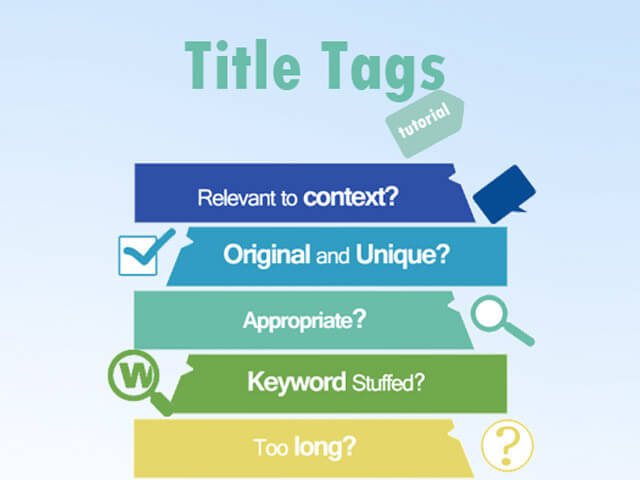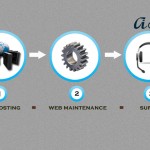Day by day, there is a shift in the way people do SEO. And this is more relevant for webmasters doing their own SEO. Often, this leads to confusion and frustration, since frequently changing strategies or poor techniques show disappointing results. And the web – which is the biggest coach of the self-help community, is ever evolving in its supply of free SEO guidance.
Today, I aim to address a very basic aspect of on-page search engine optimization. Before we begin, it is important to understand, SEO is not about fooling a search engine into believing your website is what it is not. For webmasters that do not care to SEO their websites, they leave it on the search engines to decipher key information about their websites which determine how its pages will be ranked. With the advanced search engines that we have today, they have their own mechanism of finding out the all the necessary information about a website. But for webmasters who SEO, they just go a step further, making these information more accessible to search engines. And as they say, an author knows best about his content, so it is always preferred to have a webmaster assign important tags like title, description, headers etc.
Among the important attributes that can make a substantial difference to the webpage’s search engine performance; the Meta Title Tag tops the list in hierarchy. This in no way means the other Meta tags like – Meta Description, Header Tags and the Alt title tags (of images) etc. are less important. These are just different aspects that add more meaning to a webpage to guide a visitor. Again, making these amendments does not increase its page rank. This information appears on SERPs as snippets, and are aimed at helping the viewers know what the webpage is all about.
Starting with the Meta Title tag – it is the most basic information of a website you can feed a search engine. As the name suggests, it is a tag that allows the webmaster to assign a title to the webpage. One can choose relevant terms and phrases related to the website (and its content) in framing a page’s Meta title.
It is recommended to assign a Meta Title – however it is not mandatory. If a website does not have a Meta Title, search engines would still assign one, and reflect it on SERPs. In fact, advanced search engines pick a customized page title depending on the search query keyed in by the user. Therefore, it is not necessary that search engines will show the assigned Meta Title on SERPs, it may pick a different title if it finds a more relevant one matching the user’s search criterion.
As simple as it sounds, there are few guidelines and best practices that you can rely on.
- Google, the largest and most widely used search engine, has never specified the ideal length of a Meta Title. Conventionally, a title with up to 65 to 68 characters (including spaces) is recommended. This is the maximum that is reflected on a SERP, while anything more than that is truncated.
- Google puts maximum weightage on text on the left, and progresses with diminishing value. Therefore, the Title tag should be framed starting with the most important keywords first in the order.
- The Meta Title should be unique and original –it must not be repeated on other pages. In other words, you may not use a Meta Title for all your pages, especially if it is a huge site with multiple pages. You may limit to assigning Meta Titles for the most important pages like the Home page, services, programs and events, contact page etc. However if you do put a Meta Title, it must be unique.
- The Meta Title need not be proper sentences, nor is it recommended to use just keywords making it sound like a jumble of words. It should be a balance of important terms and key phrases to convey to your audience precisely what the website offers.
It is advised to make the title catchy and out-of-the-box – this is the text that will appear on SERPs, and depending on how the visitor finds this title relevant and compelling will determine the click through rate (CTR). So this is one area worth spending time on.
- The Meta Title should not be abused with keywords. As much as it is recommended to use important terms and key phrases relevant to the business, one should be mindful to avoid stuffing it with keywords repeated in different forms. For instance, a title like this has a high chance of being penalized – ‘Keyword, Key word, keywords, key wordings …’ etc.
- To make the best use of this limited space– limit use of stop words in the Meta Title tag. Frame your title avoiding use of articles, conjunctions, prepositions and proper nouns. They add no value and take up precious space.
The above points, if adhered to, will ensure that the webmaster starts with a clean on-page structure, in terms of the Meta Title. This is just a small part of the on-page SEO basics. There are other Meta tags that make the on-page structure stronger and more effective. I hope to cover those aspects in the upcoming weeks. Implement these, and let me know if you find your pages performing better after the implementation. Also, be sure to drop in your thoughts on SEO basics and share best practices with the community.
Until my next, cheers!



 (4 votes, average: 4.75 out of 5)
(4 votes, average: 4.75 out of 5)






